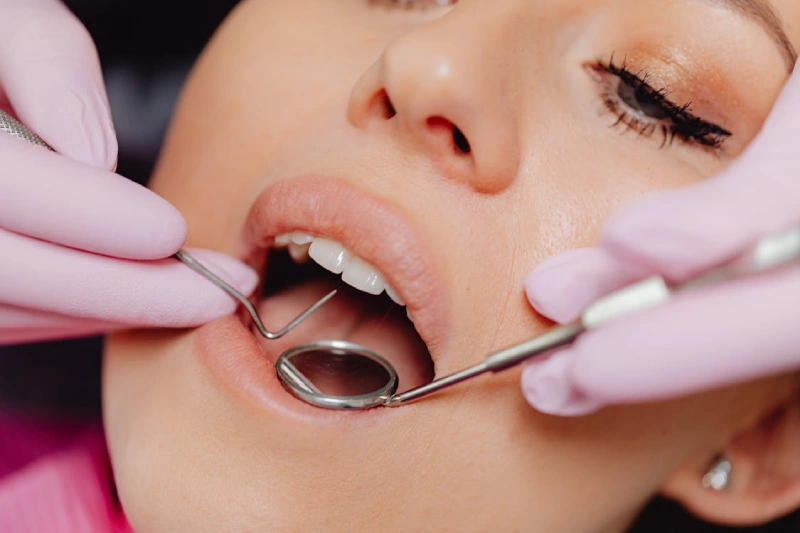Experiencing discomfort in your teeth can be annoying. However, it often signals underlying issues that need attention. Whether it’s sharp pain, sensitivity to hot or cold, or lingering discomfort, these symptoms should never be ignored.
In Texas, 68% of third graders have experienced tooth decay, and 3% require urgent dental treatment due to pain or swelling, indicating that many children suffer from avoidable dental issues. Adults face similar challenges, with only 59.4% of adults in Texas having visited a dentist in the past year. That’s why addressing dental discomfort promptly and knowing when to seek professional help is important.
Here’s how you can manage toothache effectively:
Understanding Toothaches
A toothache is generally characterized by pain in or around a tooth. It can range from a dull ache to a sharp, shooting pain. Symptoms may also include swelling in the gums, sensitivity when biting down, and persistent discomfort that interferes with daily activities. Identifying the nature of your discomfort is essential for determining the appropriate steps to take next.
When to Seek Professional Help
Recognizing the signs that indicate the need for immediate dental care is crucial. If you experience intense pain that doesn’t subside, have swelling in your gums, or have a fever, these may be warning signs of a more serious issue. It’s vital to differentiate between minor discomfort and significant problems that require professional intervention.
In Houston, TX, many resources are available to help you navigate your dental health needs, ensuring you can enjoy a pain-free smile. If you’re looking for urgent oral care, search the keyword Emergency Dentist Houston online to explore options like URBN Dental. They provide emergency dental care for broken and chipped teeth, bleeding from the mouth, root canals or extractions, and intense oral pain that prevents you from sleeping and other activities.
At-Home Remedies for Immediate Relief
While waiting for a dental appointment, there are several at-home strategies to help alleviate discomfort. Over-the-counter pain relievers, such as ibuprofen or acetaminophen, can provide temporary relief. You can also apply a cold compress to the affected area to reduce swelling and numb the pain. Rinsing your mouth with warm salt water may help cleanse the area and soothe irritation. These methods can be effective in managing discomfort until you receive professional care.
Importance of Oral Hygiene
Maintaining proper oral hygiene is a cornerstone of preventing dental issues. Regular brushing and flossing remove food particles and plaque that can lead to decay and infections. Establishing a routine that includes brushing at least twice daily and flossing daily is essential for keeping your mouth healthy. Moreover, visiting your dentist for routine check-ups allows for early detection of potential problems, ultimately preventing severe discomfort in the future.
Managing Tooth Sensitivity
Tooth sensitivity can be a significant source of discomfort for many individuals. It often arises from exposed dentin due to gum recession or enamel wear. If you find yourself wincing at hot or cold foods, consider using a toothpaste specifically designed for sensitive teeth. Additionally, avoid acidic foods that can exacerbate sensitivity. If the problem persists, consulting a dentist for tailored advice is advisable.
Dietary Considerations
Your diet plays a significant role in your oral health. Certain foods can exacerbate discomfort, while others can promote healing. If you’re dealing with sensitivity or pain, avoiding hard, crunchy, or sticky foods that may irritate your teeth is best. Sugary snacks and beverages can also contribute to decay, leading to further issues. Instead, focus on a balanced diet rich in fruits, vegetables, and dairy products. Foods high in calcium, such as cheese and yogurt, help strengthen your teeth and bones. Staying hydrated with water can also aid in flushing away food particles and bacteria, promoting overall oral health.
The Role of Stress in Oral Health
Believe it or not, stress can directly impact your oral health and well-being. High stress levels may lead to habits like teeth grinding (bruxism), which can result in discomfort and damage over time. Additionally, stress can weaken your immune system, making you more susceptible to infections. To manage stress, consider meditation, exercise, or talking to a friend or professional. Finding healthy outlets for stress can help you maintain your mental and oral health.
Long-term Solutions for Toothache Prevention
Preventing future discomfort involves adopting healthy habits and routines. In addition to maintaining good oral hygiene, consider scheduling regular check-ups every six months. These visits allow your dentist to spot potential issues early, reducing the risk of serious problems later. Also, if you have a history of dental issues, ask your dentist about sealants or fluoride treatments to further protect your teeth. Staying proactive about your dental health can lead to fewer emergencies and a more comfortable life.
The Importance of Regular Check-ups
Routine visits are crucial for maintaining optimal oral health. During these appointments, your dentist will perform cleanings, check for cavities, and assess your overall condition. Regular check-ups help detect problems early, preventing minor issues from escalating into more severe pain or complications. It’s recommended to visit your dentist every six months, but if you have ongoing issues or risk factors, more frequent visits may be necessary. Establishing a consistent oral care routine can save you from discomfort in the long run.
Understanding Insurance and Coverage Options
Navigating insurance can be confusing, but understanding your coverage is vital for managing costs associated with dental care. Most plans cover preventive services like cleanings and exams, but coverage for treatments such as fillings or crowns may vary. Familiarize yourself with your policy and ask your provider about specific benefits. If you’re facing significant oral health issues, consider discussing payment plans or financing options with your dentist’s office to ease the financial burden.
The Connection Between Overall Health and Dental Pain
Your dental health is closely linked to your overall well-being. Conditions such as diabetes, heart disease, and even respiratory issues can manifest through oral symptoms. For instance, high blood sugar levels can increase the risk of gum disease, which can lead to further complications. It’s essential to discuss any existing health conditions with your dentist, as they can affect your oral healthcare care plan. Maintaining your overall health through regular medical check-ups and a balanced lifestyle will positively impact your dental health.
Dealing with toothache can be frustrating, but understanding how to manage it effectively is crucial. Recognizing when to seek help, maintaining proper hygiene, and adopting healthy habits are all essential steps in alleviating pain and preventing future issues. If you experience persistent discomfort, don’t hesitate to contact a dentist for assistance. Taking action today will pave the way for a healthier tomorrow.















